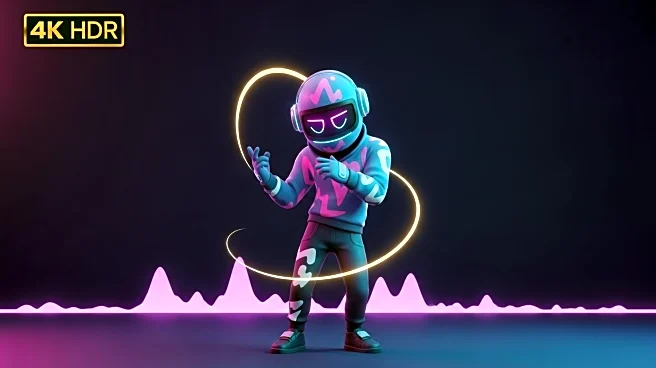What's Happening?
Epic Games has announced the return of the Peacemaker dance emote in Fortnite, following concerns that the choreography unintentionally resembled Nazi imagery. The emote, inspired by the HBO show Peacemaker, was pulled after viewers noted that the dance moves could be interpreted as forming a swastika, especially in the context of the show's alternate universe storyline where Nazi Germany won World War II. Epic Games, in collaboration with Warner Bros. Games, confirmed that there was no intention to connect the emote with the Peacemaker storyline. To prevent further confusion, Epic Games will modify the emote's choreography in the upcoming update, allowing players to return the emote if they choose.
Why It's Important?
The incident highlights the sensitivity required in digital content creation, especially when dealing with historical symbols and narratives. Epic Games' swift response underscores the importance of addressing community concerns and maintaining a respectful gaming environment. This situation also reflects the broader challenges faced by companies in ensuring their content does not inadvertently offend or misrepresent historical events. The decision to modify the emote demonstrates a commitment to cultural sensitivity and the importance of collaboration between content creators and partners to uphold these values.
What's Next?
Epic Games plans to release the modified emote in Fortnite's next update on October 9. The gaming community will be watching closely to see if the new choreography aligns better with the show's music, as fans have expressed interest in this aspect. The incident may prompt other gaming companies to review their content for unintended symbolism, potentially leading to more rigorous checks in the development process. Stakeholders, including players and developers, will likely continue discussions on the importance of cultural awareness in gaming.
Beyond the Headlines
This event may lead to broader conversations about the portrayal of historical events in entertainment media. It raises ethical questions about the responsibility of creators to avoid glorifying or trivializing sensitive historical narratives. The incident could influence future content creation, encouraging developers to be more mindful of the implications of their artistic choices, especially in a globalized digital landscape.









